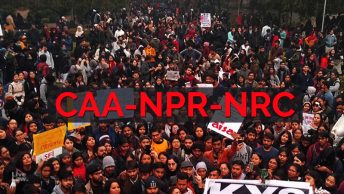India’s and Australia’s different experiences in the British Commonwealth revolved around race: British India and White Australia were based on race ideologies that justified forms fo colonialism and...
A woman in Assam is determined not to be a citizen of India by the NRC. She seeks review by a Foreigners Tribunal. She faces a formidable task. She bears the burden of proving that she is a citizen...
The Citizenship Amendment Act alters the definition of ‘illegal immigrant’ for the purposes of the Citizenship Act 1955. It provides that ‘persons belonging to minority communities, namely, Hindus...
Introduction In August, the Supreme Court will hear petitions on whether “illegal immigrants” in India are entitled to recognition as refugees. These proceedings are intrinsically linked to the...
This post is the fourth in a loosely-linked set of posts on colonial continuity in the Indian judiciary. Previous posts can be found here, here and here. In my previous post on India’s ‘British...
Suresh Kumar Koushal v Naz Foundation (“Koushal”) is a bad decision which must be overturned. This is not a new or an original observation. (See, for example, most of December 2013 on this blog.)...
Abhinav Chandrachud’s Republic of Rhetoric: Free Speech and the Constitution of India (2017) is not Gautam Bhatia’s Offend, Shock and Disturb: Free Speech under the Indian Constitution (2016)...
My first post for this blog was about Indian judges who had previously served in state and Central legislatures. At that time, I noted that ‘despite the fact that no Supreme Court judge appointed...
I note at the outset that this blog post does relate back to this blog’s remit regarding ‘India’s laws and legal system’. (Or, at least, to the question of Indian political history and culture.) It...
This is the third of a series of posts on colonial continuity in the Indian legal system. Previous posts in the series can be found here and here. Basil Reginald James was admitted to the Indian...






